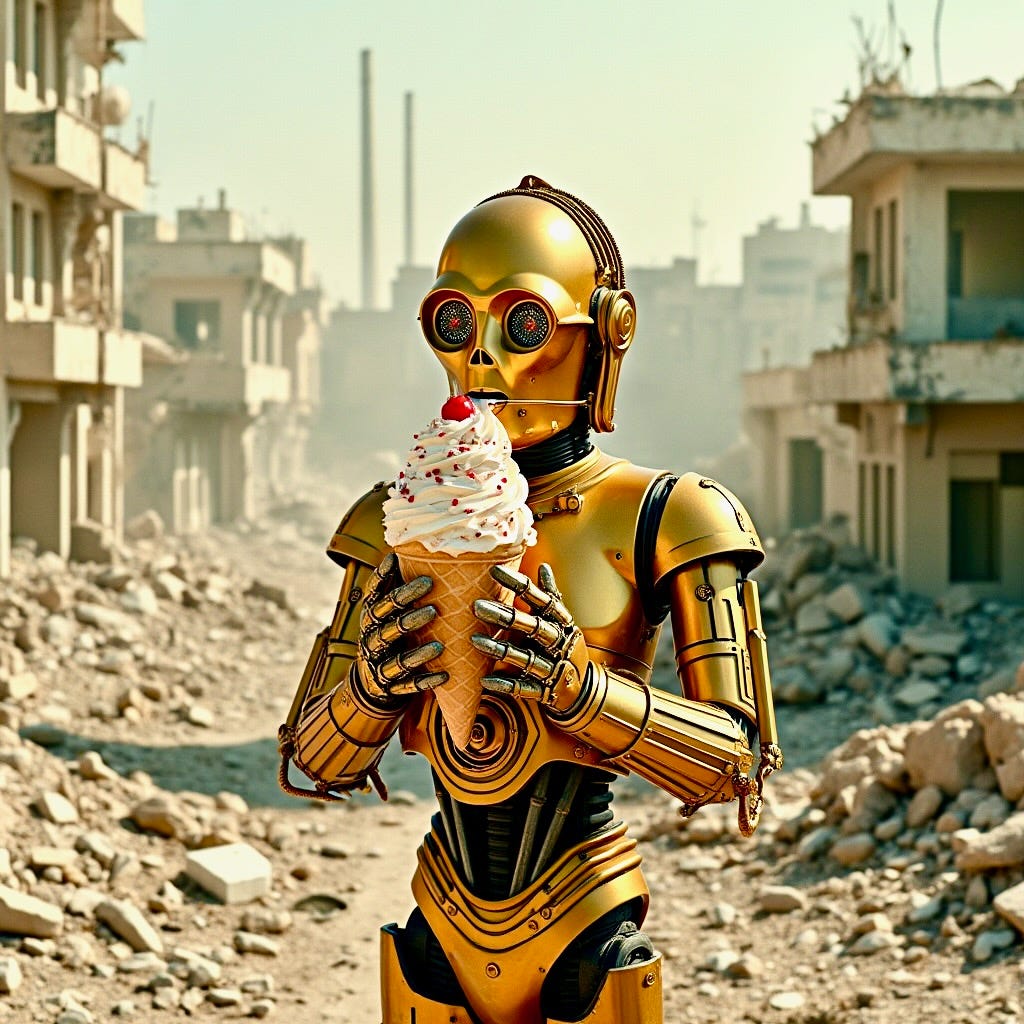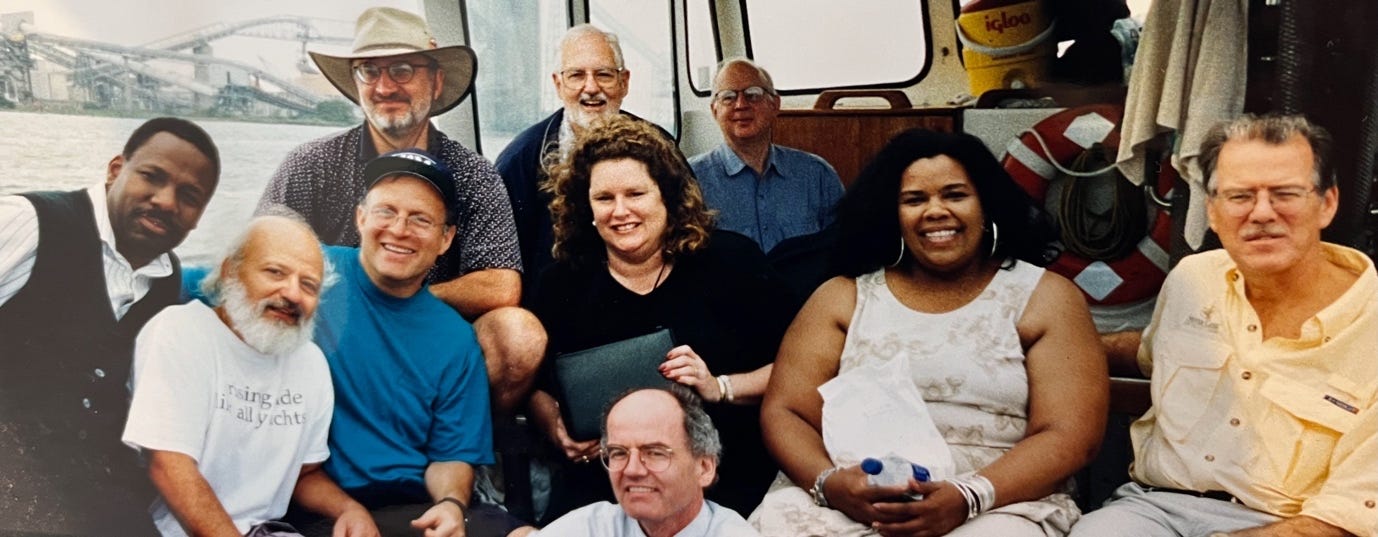Ben & Jerry’s: End Of An Era?
Jerry Greenfield’s resignation underscores the politicization of the change agenda.
Sometimes news items come along like London busses, all at once. This morning for example, I learned that Nestlé chairman Paul Bucke was resigning, that actor Robert Redford had died, and that Jerry Greenfield, co-founder of Ben & Jerry’s, had finally resigned.
The stories caught my eye for personal reasons. I worked for many years alongside Paul when I was a member of Nestlé’s Shared Value advisory council, “Bob” I met through the Skoll Foundation, and Jerry I met at probably the most memorable board meeting I have ever attended.
Far from perfect
As I recalled in my 2024 book Tickling Sharks, that 1999 board meeting was unusual in several respects:
I had been invited to fly to Atlanta, Georgia, to take part in a critical board meeting for ice cream makers Ben & Jerry’s—which had always spotlighted the positive impacts that it was trying to create.
The big question for the board, as we gathered on Cumberland Island, Georgia, was whether it should agree to sell the company and, if so, to whom. It was a challenging moment, with cofounder Ben Cohen elsewhere, unhappy with the way things were going. My advice was that Unilever, though far from perfect, would be the best of the would-be acquirers.
My assessment was bit based on some years of having worked with Unilever—and, full disclosure, Volans continues to work with the company. Unhappily, though, nature was brewing other plans for us on Cumberland Island:
But then Hurricane Floyd hit, the board meeting was truncated, and were bundled into a boat back to shore, driving to Atlanta as well over a million people moved inland from the ocean. Biblical scenes ensured. The storm, we learned later, killed forty-eight people and more than two million farm animals.
The crucial reason why this meeting stuck in my mind, however, is that Ben & Jerry’s asked me to serve as a guarantor of their values if acquired, but the Securities and Exchange Commission (SEC) apparently then struck that clause out as illegal. Significant, perhaps? Nonetheless, I would get calls from Unilever every time a major controversy was boiling up with Ben & Jerry’s.
The ice cream wars
Although no longer formally involved, I have taken a keen interest in how this relationship played out over time. Now, sadly, it seems to have reached the end of the road that I briefly joined the founders on.
As the BBC reported this morning, “Ben & Jerry's co-founder Jerry Greenfield has left the ice cream maker after almost half a century at the firm, deepening a dispute with parent company Unilever. In a letter shared on social media by fellow co-founder Ben Cohen, Mr Greenfield said the Cherry Garcia maker had lost its independence after Unilever put a halt to its social activism.”
Jerry’s exit marks the latest episode in a very public row that started in 2021 when Ben & Jerry's said it would stop selling its ice cream in Israeli settlements in the occupied West Bank and East Jerusalem. Those issues have become radically more charged since Israel’s siege of Gaza.
A spokesperson for The Magnum Ice Cream Company, now being spun off from Unilever, said it was grateful to Mr Greenfield but disagreed with his stance. In his letter, Jerry said that leaving the firm was "one of the hardest and most painful decisions" he had ever made—but he noted that he could no longer "in good conscience" work for a business that had been "silenced" by Unilever.
In terms of key areas of disagreement, Ben & Jerry's had accused Unilever of demanding that it stop publicly criticising US President Donald Trump. And then, in May, the BBC noted, “Mr Cohen was arrested during a protest in the US Senate over military aid to Israel and humanitarian conditions in Gaza. Protesters disrupted the hearing while Health and Human Services Secretary Robert F Kennedy Jr was testifying.”
It is hard not to sympathize with Ben & Jerry’s on all fronts, yet it’s also not hard to see how a major multinational might quail at having its international apple car upset—or at least put at considerable risk of being upset.
“Free Ben & Jerry’s”
It doesn’t quite have the ring of “Free the Slaves!”, “Free the Chicago Seven!” or “Free Nelson Mandela!”, but the Ben & Jerry’s cofounders’ plea for independence has come across as heartfelt. And the growing tensions between the parent and subsidiary have been painful to watch.
As The Guardian reported, after “the ice-cream maker said it would stop selling in the Israeli-occupied West Bank. Ben & Jerry’s has sued its owner over alleged attempts to silence it and called the conflict in Gaza ‘genocide’.” At the time a Unilever spokesperson countered: “Our heart goes out to all victims of the tragic events in the Middle East. We reject the claims made by B&J’s social mission board, and we will defend our case very strongly. We would not comment further on this legal matter.”
As Ben Cohen later explained the situation:
Ben & Jerry’s was founded on a simple but radical premise: that our business could thrive and make outstanding products whilst standing up for progressive values. We fought to ensure our social justice mission was protected by Unilever when the company was acquired, but over the past several years, this has been eroded, and the company’s voice has been muted. We won’t be silent any more. Authenticity has always been at the very heart of what we do, and stripping this away risks destroying the very value of Ben & Jerry’s. We urge the board and potential investors to rethink the inclusion of Ben & Jerry’s in Magnum’s future makeup and establish a Free Ben & Jerry’s.
Three-part mission
Ben and Jerry tried to put together a deal to buy their company back. But, on the other side of the fence, a spokesperson for The Magnum Ice Cream Company (TMICC) was quoted as saying: “Ben & Jerry’s is a proud part of The Magnum Ice Cream Company and is not for sale. We remain committed to Ben & Jerry’s unique three-part mission—product, economic and social—and look forward to building on its success as an iconic, much-loved business.”
Given the nature of modern capitalism, my sense is that this outcome was almost inevitable. At a time when the corporate responsibility and sustainability agendas are becoming increasing political and politized, issues like Gaza are increasingly polarizing. The fault-lines between Ben & Jerry’s and Unilever may be more sharply defined than between other big corporations and their once-independent and mission driven subsidiaries, but I very much doubt that this will be the last such example of founders making dramatic exits.
The critical question now for anyone advising such founders on whether—and, if so, how—to sell will be how to ensure a better integration of values between acquirer and acquired.
Personally, I don’t think we have seen a better agreement than the one Ben & Jerry’s signed with Unilever, so in an increasingly fractured and fractious world I really wonder whether it is ever going to be possible for big businesses to stick with the declared values of their more activist acquisitions?
But, they advise, never say never.




Definitely end of an era, but also a long time coming. I remember visiting their first factory in Vermont and feeling how exceptional they were - like Roddick and the Body Shop, which I wish Natura hadn’t sold - and then reading about their existential wrestling in Ice Cream Social: The Struggle for the Soul of Ben & Jerry's. It was always tough for activist / missionary companies to survive inside big corporates; but now even more so
Oy vey, John, this is so sad. Perhaps inevitable, though, as you say, given the current socio-political environment. I well remember the Ben & Jerry's arc, one that scaled from Vermont to London as it bent toward justice. Your role, and that of committed customers and shareholders, helped assure that. However, the crucible of Palestine puts the lie to any conceivable notion of justice, but crucibles aren't business models. For B&J, might integrity make a comeback? Perhaps. Complex systems are funny things; like quantum physics, there's stuff happening all over the place that you cannot see. "Never say never" becomes a wise and useful stance, the place where hope resides.